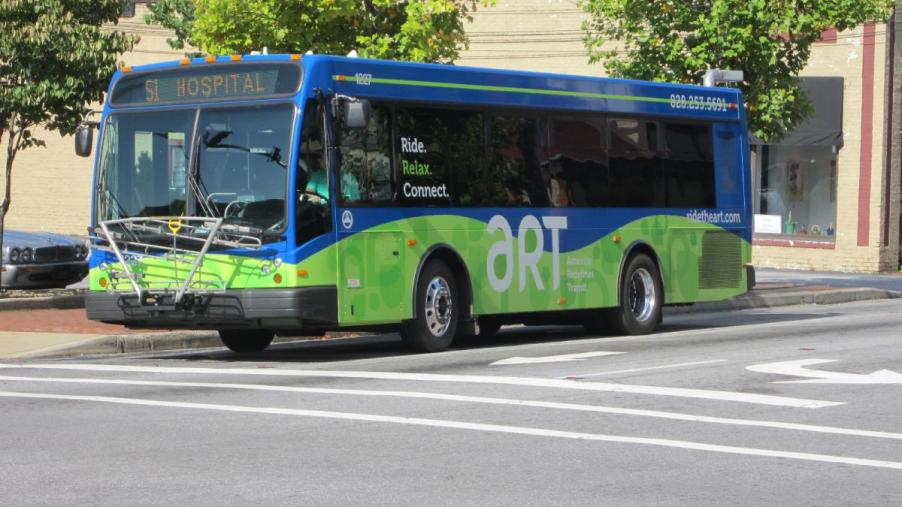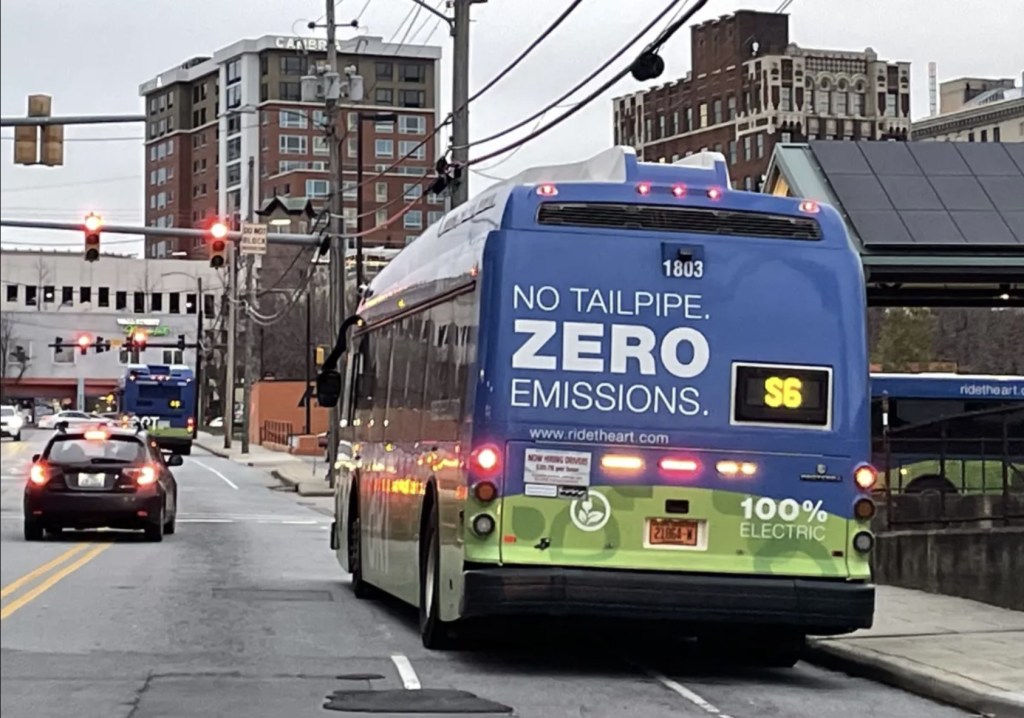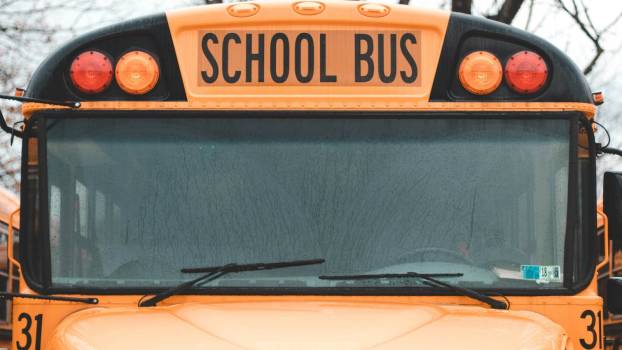
Gambling on Electric Buses Costs US City Over $5 Million
Public transportation is an excellent resource for cities if planned out correctly. The city of Asheville, NC, is feeling an unpleasant shock after losing millions by attempting to switch to electric buses. Check out what went wrong with the fleet of electric buses.
Asheville, NC, loses millions on electric buses for public transit
Asheville, NC tried to go green and help its citizens by providing transportation with a fleet of five electric buses. Each bus cost $616,000 or more, totaling $3,080,000. Then it costs $200,000 to install each charger, bringing the total up to $4,080,000.
But that’s not all. It costs $118,000 per year to lease the batteries, about $45,000 to charge the buses, and there has been $250,000 in maintenance costs.
Currently, three buses are out of service due to mechanical problems. The two remaining electric buses that are in service can only travel for about 78 miles during the winter before returning to the terminal to charge for hours.
Having these buses down creates more wear and tear on the 38 other buses in the fleet that are either hybrid or run on biodiesel.
John McDaniel, maintenance Director, shared that Asheville is pausing investments in electric vehicles until it can ensure that the products purchased will actually work.
Asheville spokesperson, Kim Miller, explained there can be unidentified issues when adapting to new technology.

The decision to no longer invest in fully electric buses aligns with Asheville Ride’s Transit requirements for range, reliability, cost-effectiveness, and size.
The city just spent $1.9 million on new diesel buses to replace three of the electric buses. Asheville may have been able to save millions by investing in diesel buses in the first place. It’s unclear how much the annual cost of diesel for these buses is.
However, this is good news because the more buses that work, the better. Half the money comes from Federal funds and the other half comes from city-budgeted funds.
Asheville remains committed to providing transit service and exploring more sustainable and efficient transit solutions.
As an Asheville resident, I have struggled with getting around the buses in traffic before. Multiple times during a normal daily commute I found myself stuck behind the buses as they broke down in the middle of the crowded interstate.
I’m all for helping others with public transportation, as long as citizens can depend on the units to work and keep the flow of traffic moving.





